- SilverWare
- Wooden Furniture & Craft
- Wooden Nautical Gift
- Wooden Block
- Wooden Rehal[Book Reading]
- Wooden Table Corner
- Wooden Incense Stick Burner
- Wooden Cutlery & Cigar Pipe
- Wooden Almira
- Wooden Walking Stick & Stand
- Wooden New Development Furniture
- Wooden Lamp
- Wooden Dinning Set
- Wooden Chess & Game Box
- Wooden Chess
- Wooden Mango Wood European Style Furniture
- Wooden Extension
- Wooden Drawer
- Wooden Meena Work Antique
- Wooden Teak Wood European Style Furniture
- Wooden bed side
- Wooden Photo Frame
- Wooden binary table
- wooden bench
- Wooden Office Desk
- Wooden Jewellery
- Wooden Swing
- wooden drawer chest
- Wooden Tvc
- Wooden Stationary
- Wooden Table Piller
- wooden wine bar
- Wooden Mislinius Furniture
- Wooden Pen Holder & Pen Box
- Wooden Box
- wooden chair
- Wooden Screen
- Wooden House Hold Product
- Wooden Ash Tray
- Wooden Side Board
- Wooden Mirror Frame
- Wooden Coaster
- Wooden Candle Stand
- Wooden Table Octangle
- ALUMINIUM
- Musical Instrument
- Stallone Pig Bristle
- Rugs & Carpet
- Stone Product
- IRON WARE
- Zinc Oxide
- GUAR GUM
- Brass Nautical & Marine Re-Production Instrument
- Brass Clinometer
- Brass Abney Level
- Brass candle stand
- Brass Ship Clock
- Sailers Wheel
- Brass Microscope
- Brass Flower Base
- Brass Ship Telegraph
- Brass Ship Anchor
- Brass Porthol Window
- Brass Photo Frame
- Brass Sextant
- Brass Mix Nautical Gift
- Brass Weather Instrument
- Brass Ashtray
- Brass Sand Timer
- Brass Boat Horn
- Brass Ship Bell
- BRASS CHRISTMAS DECORATIVE
- Brass Theodolite
- Brass Divider
- Brass Vernier Caliper
- Brass Kitchenware
- Brass Surveying Level
- Brass Nautical Key Chain
- Brass Pully [Reel]
- Brass Napkin Ring
- Brass Diving Helmet
- Brass Magnifier
- Brass Rain Guage
- Brass Bottle Opener
- Brass Ship Lamp
- Brass Compass
- Brass Lamp
- Brass T Light Holder
- Brass Globe
- Brass Porthol Mirror
- Brass Binoculers
- Brass Search Light
- BrassWare New Range
- Brass Flag Hook
- Brass Measurement Tape
- Brass Telescope
- Brass Gong
- Medieval Armoury
- Bronze Statue
- Home
- About us
- ShopNew

50% OFF FOR
New collection
Free shipping & free returns on dresses

Hot week
Discover the selection
Shipping worldwide only 5 days - Executive Member
- Contact us
- SilverWare
- Wooden Furniture & Craft
- Wooden Nautical Gift
- Wooden Block
- Wooden Rehal[Book Reading]
- Wooden Table Corner
- Wooden Incense Stick Burner
- Wooden Cutlery & Cigar Pipe
- Wooden Almira
- Wooden Walking Stick & Stand
- Wooden New Development Furniture
- Wooden Lamp
- Wooden Dinning Set
- Wooden Chess & Game Box
- Wooden Chess
- Wooden Mango Wood European Style Furniture
- Wooden Extension
- Wooden Drawer
- Wooden Meena Work Antique
- Wooden Teak Wood European Style Furniture
- Wooden bed side
- Wooden Photo Frame
- Wooden binary table
- wooden bench
- Wooden Office Desk
- Wooden Jewellery
- Wooden Swing
- wooden drawer chest
- Wooden Tvc
- Wooden Stationary
- Wooden Table Piller
- wooden wine bar
- Wooden Mislinius Furniture
- Wooden Pen Holder & Pen Box
- Wooden Box
- wooden chair
- Wooden Screen
- Wooden House Hold Product
- Wooden Ash Tray
- Wooden Side Board
- Wooden Mirror Frame
- Wooden Coaster
- Wooden Candle Stand
- Wooden Table Octangle
- ALUMINIUM
- Musical Instrument
- Stallone Pig Bristle
- Rugs & Carpet
- Stone Product
- IRON WARE
- Zinc Oxide
- GUAR GUM
- Brass Nautical & Marine Re-Production Instrument
- Brass Clinometer
- Brass Abney Level
- Brass candle stand
- Brass Ship Clock
- Sailers Wheel
- Brass Microscope
- Brass Flower Base
- Brass Ship Telegraph
- Brass Ship Anchor
- Brass Porthol Window
- Brass Photo Frame
- Brass Sextant
- Brass Mix Nautical Gift
- Brass Weather Instrument
- Brass Ashtray
- Brass Sand Timer
- Brass Boat Horn
- Brass Ship Bell
- BRASS CHRISTMAS DECORATIVE
- Brass Theodolite
- Brass Divider
- Brass Vernier Caliper
- Brass Kitchenware
- Brass Surveying Level
- Brass Nautical Key Chain
- Brass Pully [Reel]
- Brass Napkin Ring
- Brass Diving Helmet
- Brass Magnifier
- Brass Rain Guage
- Brass Bottle Opener
- Brass Ship Lamp
- Brass Compass
- Brass Lamp
- Brass T Light Holder
- Brass Globe
- Brass Porthol Mirror
- Brass Binoculers
- Brass Search Light
- BrassWare New Range
- Brass Flag Hook
- Brass Measurement Tape
- Brass Telescope
- Brass Gong
- Medieval Armoury
- Bronze Statue
SA0233 German burgonet, Medieval Knights Helm
German burgonet, Medieval Knights Helm
German burgonet, Medieval Knights Helm
Commonplace throughout Europe, it first came into use early in the 16th century
and had attained its classic form by c. 1550.Accompanied by plate armour,
burgonets were mostly worn by cavalry: cuirassiers, demi-lancers and, in Eastern
Europe, hussars.German burgonet, c. 1560, showing the open face of the helmet.
The Border Reivers, of the English-Scottish borderlands, were very fond of
burgonets and the morion in Elizabethan times, and as a result reivers were often
called steil (steel) bonnets. Burgonets were also a popular helmet type among the
Polish winged hussars, where they merged with types of lobster-tailed pot helmets
(zischagge), often featuring a nasal bar or facial guard.The burgonet was common
among the mercenary Swiss infantry who were pikemen who could defend
themselves against cavalry (perhaps taking helmets of this form as trophies).
Following the appearance of the Adrian and Brodie helmets and the Stahlhelm, in
the First World War, the Swiss experimented with a “streamlined” form of the
burgonet for their own national helmet, but both designs were rejected.
The factors of utility of the burgonet over older helmets include:Cost—The main
factor in the decision to wear one; burgonets were significantly cheaper than
large closed-face helmets.Encumbrance—Close helmets were very bulky and
heavy. It could be hard for the wearer to see, breathe or turn his head while
wearing one. The burgonet, however, was light and had an open face that gave an
advantage in offense.Protection—The burgonet was not as protective as heavier
helms, but still afforded some protection. Having an open face could be remedied
with a falling buffe.
Related products
Copyright © STALLONE OVERSEAS PVT. LTD. All rights reserved.
- Home
- About us
- ShopNew

50% OFF FOR
New collection
Free shipping & free returns on dresses

Hot week
Discover the selection
Shipping worldwide only 5 days - Executive Member
- Contact us




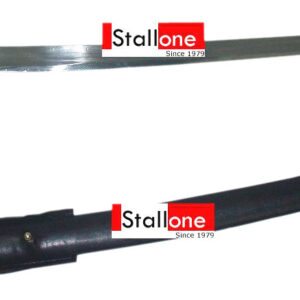
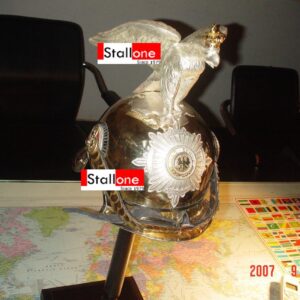
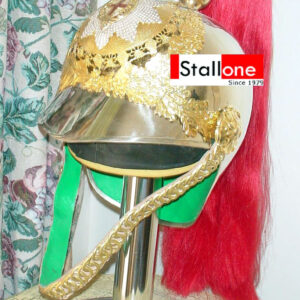
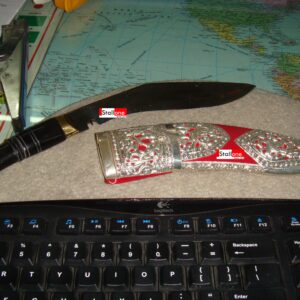
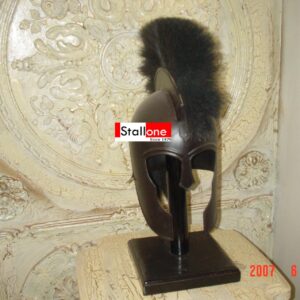
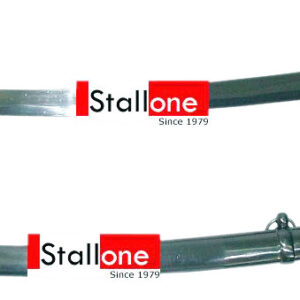
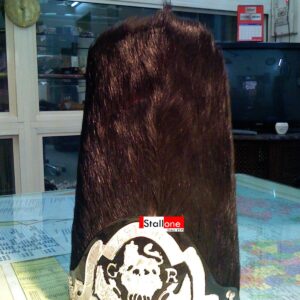
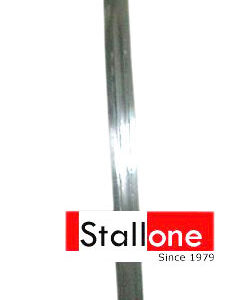
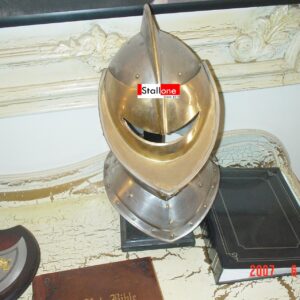
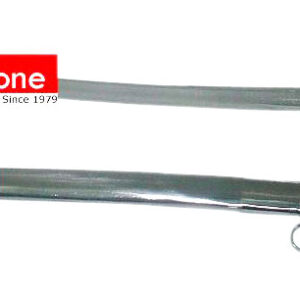
Reviews
There are no reviews yet.